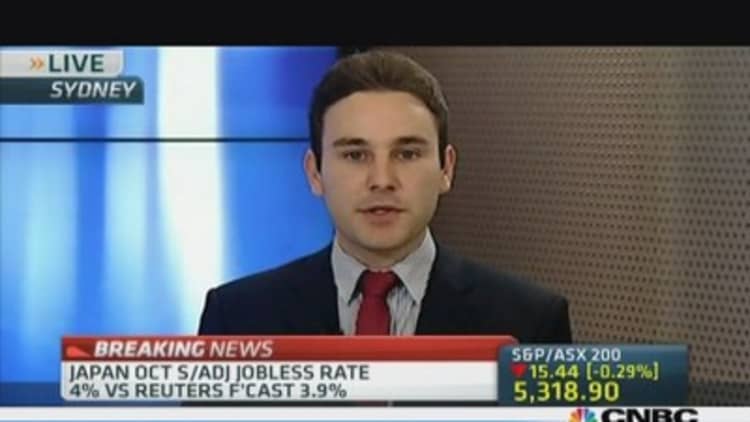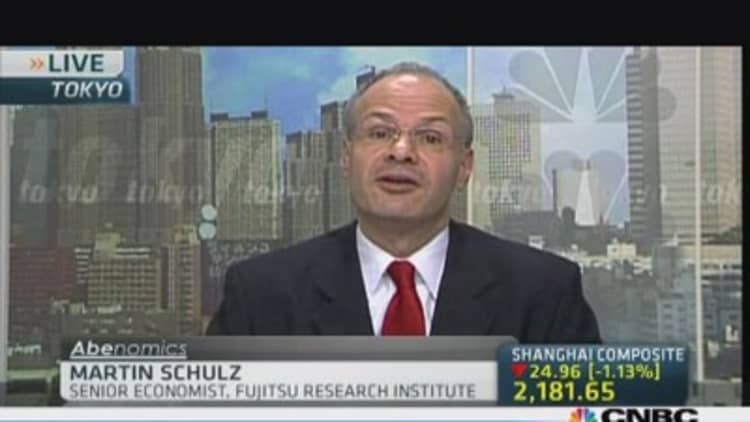Japan's central bank is planning scenarios for an expansion of its already massive economic stimulus program, looking to go beyond its $70 billion-a-month bond-buying operation, according to officials briefed on the process.
Options include major purchases of stock market linked funds or other assets riskier than Japanese government bonds (JGBs), the insiders said.
(Read more: Bank of Japan keeps hefty stimulus in place)
More radical ideas are also being floated within the central bank and among government officials who deal with the BOJ, including even more aggressive buying up of JGBs - a market already dominated by the central bank under its existing policy.
"There's no sense that further stimulus is imminent," said one of these officials, adding the central bank's inflation target is still a long way off. "There's no harm in thinking about options."

Markets are penciling in further stimulus from the BOJ sometime next year on concerns that the economy and inflation will lose some momentum.
BOJ Governor Haruhiko Kuroda stressed earlier on Monday that Japan was on course to secure sustainable inflation of 2 percent in two years, a target set when the central bank announced a massive burst of money printing in April to double base-money supply.
That has been combined with fiscal stimulus from the government of Prime Minister Shinzo Abe and the promise of economic reform.
The policy combination, referred to as the prime minister's three arrows, has driven the yen down and Tokyo stocks up since Abe came to power a year ago and spurred the strongest economic growth among G7 nations in the first half of the year.
(Read more: Can Japan kiss deflation goodbye?)
However, economic growth slowed sharply in the July-September quarter and while inflation is its highest in five-years, it is well below the target and the outlook is weakening.

A rise in a national sales tax to 8 percent from 5 percent in April could also dampen consumption, although the BOJ has maintained damage to the economy will be limited.
Some policymakers on the BOJ's nine-person board also have doubts that 2 percent inflation can be achieved in two years.
The BOJ might start to consider fresh stimulus, the officials with knowledge of BOJ thinking say, if data from July onwards shows that the tax hike is hitting the economy harder than expected.
An abrupt yen rise, say to 95 per dollar from around 102 now, or the outcome of spring wage negotiations and fiscal considerations could all weigh on BOJ policy decisions next year, these officials say.
(Read more: Japan's economic growth slows in Q3)
One official briefed on the process said any further easing could focus more on quality than quantity - taking up more risk rather than simply bolstering the size of purchases.
"It's hard to exceed in size what the BOJ delivered in April," this person said. "There may be a need to shift from the approach of aiming for the size effect."

